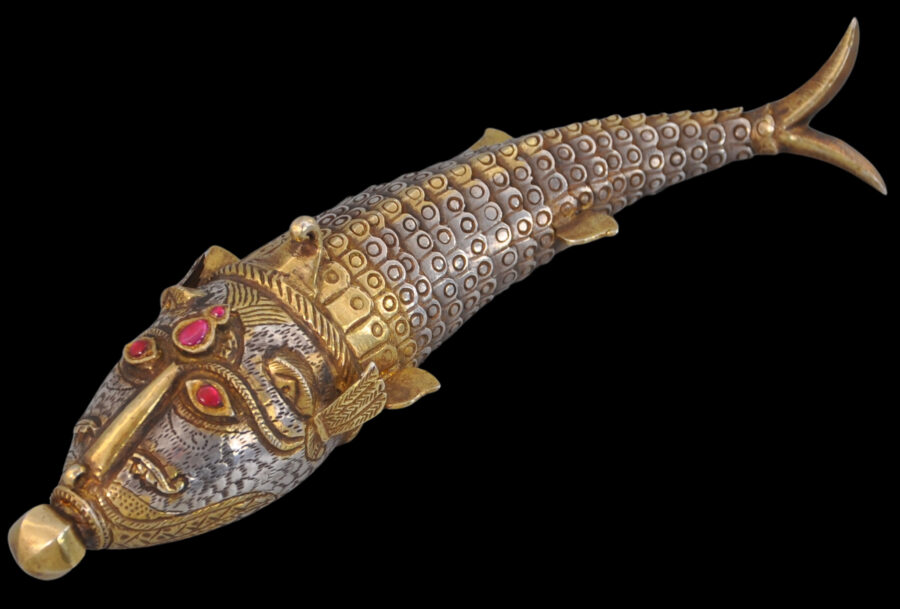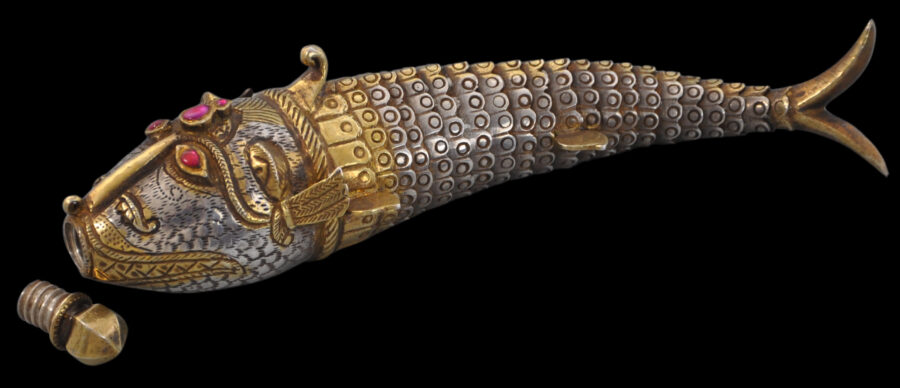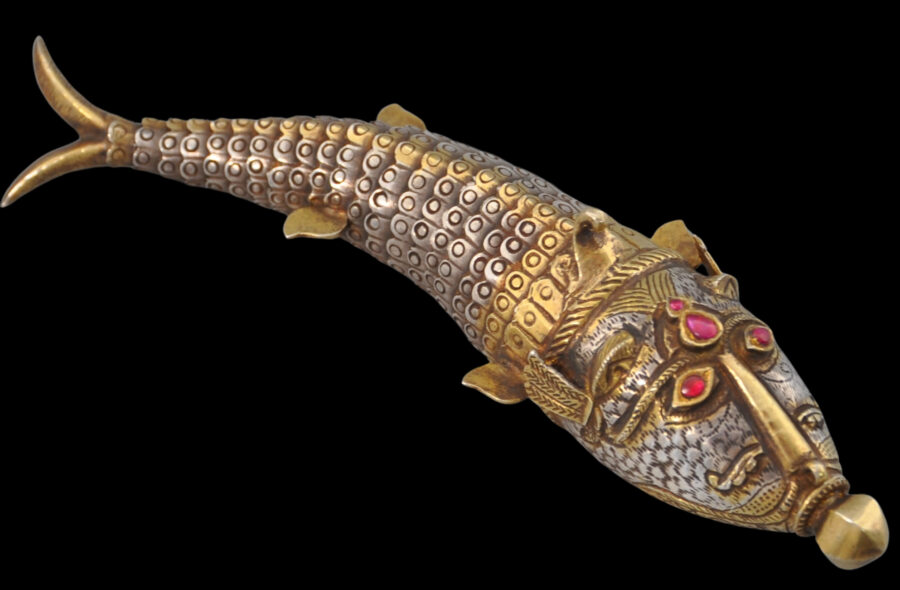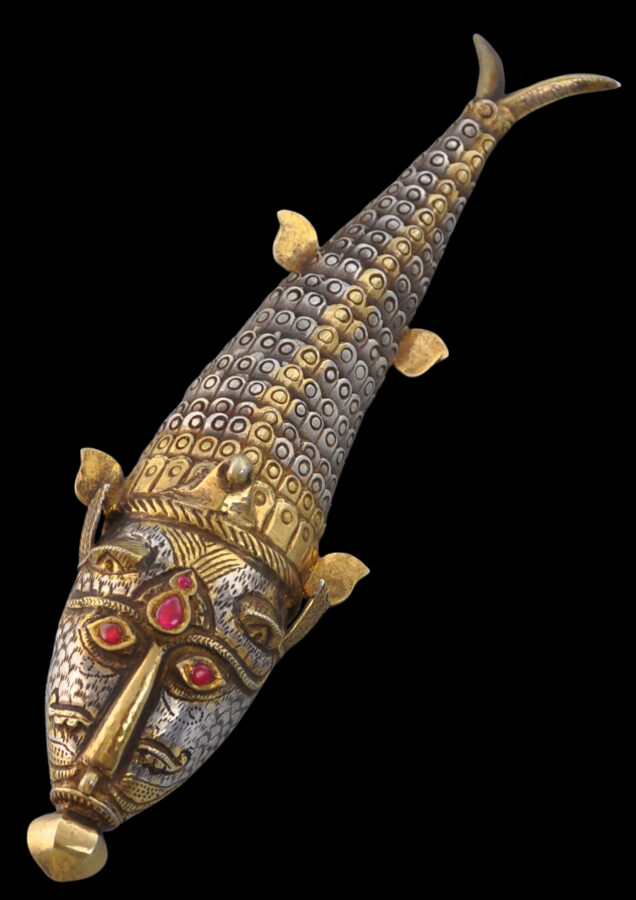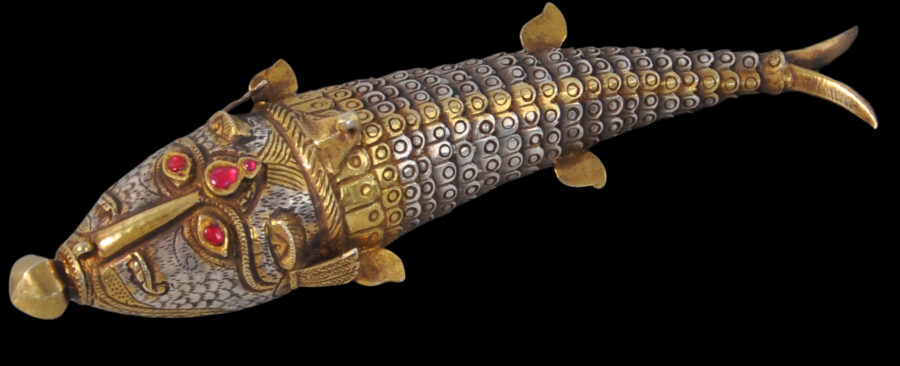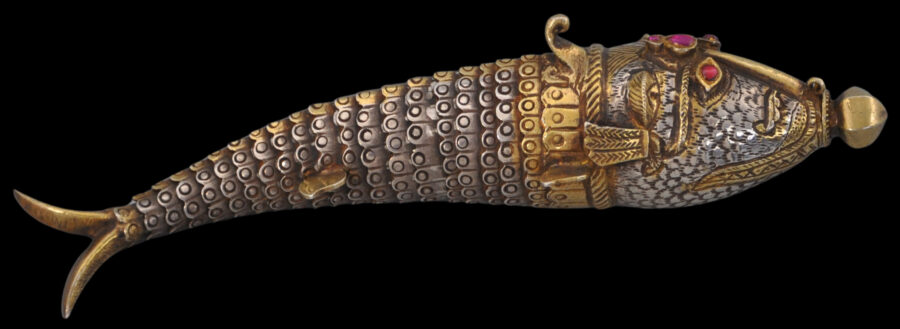This fine model fish is of solid silver that has been partly gilded or gold-plated and set with four ruby cabochons. It was made to serve as a container for kohl (antimony) used as an eyeliner, or to hold red vermilion powder used for personal adornment and to decorate images of household Hindu gods. It might also been used to hold perfume. Additionally, Zoroastrian Parsi (Parsee) Indians would use such containers as part of their ritual ses sets.
The body of the fish comprises dozens of engraved plates arrayed as rows of scales that have been ‘sewn’ together with silver wire. As such, the body of the fish has a muscular flexibility in the manner of a real fish.
It is a finer-than-usual example of such a container with especially beautiful gilding work. The fish has also been constructed so that its body has a naturalistic curve – this is unusual as most such fish containers are more rigid.
The mouth of the fish has a gilded stopper which screws in to close the container. Two rubies serve as eyes and two more serve as what might be a tilaka mark on the fish’s forehead.
The fish has a prominent tail or caudal fin, two pairs of pectoral fins to either side, and a pair of pelvic fins below the body. Each fin is gilded.
Possibly, the form of the fish is modelled on amahseer, a fierce salmon-like fish known in South Indian rivers, with similar body shape and fins.
Terlinden (1987, p. 95) illustrates several silver examples. Meghani (2017, p. 110) illustrates a silver and silver-gilt example in the UK’s Royal Collection which was presented by the Nawab of Tonk.
The fish here is in excellent condition.
References
Godrej, P.J. & F. Punthakey Mistree, A Zoroastrian Tapestry: Art, Religion & Culture, Mapin Publishing, 2002.
Meghani, K., Splendours of the Subcontinent: A Prince’s Tour of India 1875-6, Royal Collection Trust, 2017.
Terlinden, C., Mughal Silver Magnificence, Antalga, 1987.


